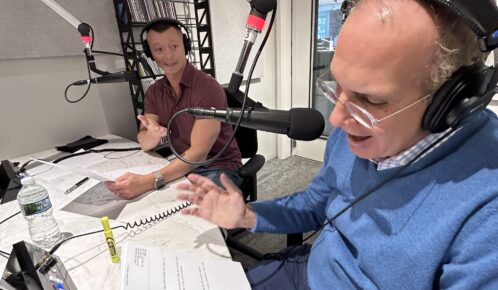What if the other driver’s insurance denied my claim? If another driver’s insurance company denies your claim following a car accident, you may file a lawsuit against the insurer if you believe the company acted in bad faith, or you might have the chance to file a lawsuit directly against the other driver.
Table of Contents

Ultimately, the action you take after a claim denial will depend on the nature of the denial and the liability of the parties involved.
If you need help with appealing a claim denial or filing a lawsuit against an insurer or liable party, call Ankin Law today at 312-600-000 to connect with a car accident attorney in Chicago.
Reasons for Insurance Denial in Illinois
Car accidents occur in Illinois every day, often resulting in injuries. In fact, in 2022, 20% of car accidents involved injuries, with many of these cases involving the four common types of car accidents in Illinois and warranting compensation due to another party’s negligence. Seeking compensation would normally entail filing a third-party insurance claim with the liable party’s insurer, often another driver’s, but these claims aren’t always successful. In situations like these, you may find yourself wondering, “Can insurance companies deny coverage?” Insurance companies can deny coverage under certain circumstances pertaining to your claim.
Typically, when an insurer denies a claim, the company will provide the claimant with a reason in a written notice. If an insurance company denied your claim, it could be for some of the following key reasons:
Missed Deadlines
One of the main reasons why insurers could deny insurance claims is the failure to open the claim on time. Like other states, Illinois has a statute of limitations in place for car accident claims, giving accident victims a limited amount of time to file before they’re unable to seek compensation.
In Illinois, the statute of limitations for car accident claims is two years from the time of the accident or the discovery of injury. If you don’t file within this time, insurers could have a valid reason to deny your claim, but there are exceptions to the statute that may apply to your case, such as being a minor at the time of the accident and through the two-year window.
Liability Disputes
In some cases, insurers for a liable party may determine that the claimant is partially or entirely liable for an accident, leading the company to deny the claim. Even if the policyholder is liable for the accident, the insurer could alternatively claim that your injuries, property damage, and other damages didn’t result from the accident.
These disputes are why it’s essential to have sufficient evidence proving liability in car accident cases. This evidence could include everything from medical bills and receipts for vehicle repairs to police reports and footage of the accident and your injuries. So, if you’re asking, “Should I see a doctor after a car accident,” this is an absolutely crucial step.
The Policy Doesn’t Cover the Accident
Insurance policies can only cover certain types of accidents, often including those resulting from negligence on the part of the policyholder. Some accidents fall outside this coverage, such as accidents involving malicious intent or natural disasters that aren’t the fault of anyone involved. If the accident counts as an exclusion on the policy, the insurer may validly deny your claim.
Unpaid Premiums
The policyholder could have failed to pay an insurance premium on time when the accident occurred, subsequently rendering the policy expired. As such, you may not be able to file with the insurer if the former policyholder no longer has coverage.
When Insurers Act in Bad Faith
In addition to the above reasons for denying a claim, insurance companies may deny claims by acting in bad faith.
Reasons for denials resulting from bad faith practices include:
- Neglecting to properly investigate the claim, including reviewing all evidence and looking into the circumstances of the accident.
- Intentionally misrepresenting the policy and denying a claim even when the claim falls under the policy’s coverage.
- Making low-ball settlement offers that fall far below the amount the claim is actually worth, usually in the hope that the claimant will accept it before seeking total compensation.
- Making false accusations of insurance fraud against the claimant, such as faking an injury, even when the claimant has no such intentions.
If an insurer denied your claim due to bad faith insurance practices, you may be able to file a lawsuit against the insurer with the help of a personal injury lawyer.
Steps to Take if Your Claim Is Denied
The following are some steps to take if an insurer denies your claim:
Consult a Car Accident Attorney
In the event of an insurance claim denial, you may be able to appeal the decision with the help of an experienced personal injury lawyer. The right attorney will meet with you in a free consultation to discuss the nature of your claim and accident and help determine whether you have the ability to recover compensation.
Appeal the Decision
You may appeal if the insurer acted in good faith when denying your claim. For instance, your attorney may determine that evidence was unavailable to prove liability at the time of filing the claim, with the chance to introduce this evidence in a claim that insurers are less likely to deny.
A car accident lawyer will ultimately help you file the appeal and explain the decision behind it.
Sue the Insurer for Bad Faith
Conversely, if an attorney determines that an insurer acted in bad faith when denying your claim, you may be able to take the insurer to court. In the process, your attorney can prove the validity of your claim and the bad faith practices that resulted in the denial, such as making a far lower settlement offer than what you deserve or misrepresenting the terms of the insurance policy.
Alternative Options for Compensation
If the insurer either validly or wrongfully denied your claim, and you’re still unable to appeal the decision, your attorney can help you file a lawsuit directly against the liable party. While the claims process would entail going through insurers to recover compensation, a lawsuit would aim to recover compensation directly from another driver or someone else who caused the accident.
Typically, personal injury lawsuits will settle during initial negotiations, during which process the plaintiff and his or her attorney would attempt to prove liability.
There are four main items you will need to prove in a lawsuit to successfully recover compensation:
- The defendant owed a duty of care, such as driving responsibly on the road
- The defendant breached that duty of care through some form of negligence, such as distracted or aggressive driving
- The breach of duty caused an accident
- The accident resulted in calculable damages such as injuries and damage to property
If the case doesn’t settle during negotiations, your attorney could decide to take the case to court.
What Is an Injury in a Car Accident Claim?
If you wish to file a claim or lawsuit following a car accident, it’s important to know what is considered an injury in a car accident claim.
Insurers could wind up denying a claim if it seems as though your injuries didn’t result from the accident, which is why it’s important to know what types of injuries typically result in these cases.
Common car accident injuries include:
Whiplash
This injury occurs when the neck and head jerk back and forth, often resulting in strained or even torn muscles, tendons, or ligaments.
Cuts and Abrasions
Debris from the accident and impact with vehicles can result in cuts, abrasions, and lacerations, ranging from minor to severe.
Broken and Fractured Bones
Arm, leg, hip, and other bones could break or fracture due to impact in car accidents.
Head Injuries
Victims’ heads could hit parts of a vehicle’s interior, potentially causing concussions or more extensive injuries to the head and brain.
Spinal Cord Injuries
Some car accident victims sustain serious back and spinal cord injuries due to pressure or strain on the back or neck, which could result in paralysis.
Internal Injuries
Victims could also suffer injuries to the organs and other parts of the body, with signs of these injuries often including bruising and internal pain sensations.
Take the Right Steps With Your Claim
Has an insurance company denied your insurance claim, or are you worried that a denial will result? You may be able to take the right steps to succeed with your claim or reverse the denial. Working with a reputable car accident attorney in Chicago could help increase your chances of success.
To speak with an attorney in a free consultation, contact us at Ankin Law today, and we’ll connect you with one of our experienced attorneys to discuss a car accident case.



